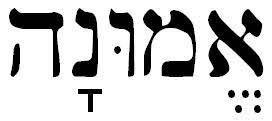
It has been 12 years since I was first diagnosed with cancer. I am 76 years old. After fighting breast cancer with radiation, along with a lumpectomy, I now have angiosarcoma, diagnosed at age 71. This is a rare type of cancer coming from the muscle tissue within blood vessels. It began in my right breast and there is the potential to spread to other organs. I am being treated at GBMC (Greater Baltimore Medical Center) in Towson Maryland as well as Sloan Kettering in New York.
I have undergone chemotherapy, surgeries,
MRIs, and CT scans. I qualified for a clinical trial at Sloan Kettering and
commuted every three weeks for treatments for six months. When that trial was
not successful for me, I went back to general chemo.
Baruch Hashem, it has been contained.
Now, please don’t feel sorry for me.
I don’t feel sorry for me. The respect I have for my doctors and their
staff is amazing. I tolerated my treatments fairly well. I do not need
sympathy, pity, or sadness.
My
son-in-law always says, when people ask him how he feels, “I woke up this
morning. This is what we do. Modeh ani lefanecha.
I am alive and ready to start a new day. Thank you for renewing my body and
spirit.”
This leads me to emunah – total faith in Hashem. This has been difficult for me
since I did not grow up knowing about this belief. I started to incorporate emunah into my being when I visited the
Kotel in 2017. I felt an emotion never felt. I sat at the Wall and cried.
Hashem was with me. I knew this was my path.
Since then, I have been studying, learning,
and davening. I know I am not there yet. I know that there are people davening
for me, sending me brachas, and
wanting to be helpful. My husband, daughters, and sons-in-law are always there
for me. Not possible is not in their vocabulary. They are my team. When
I read this essay to my family, my daughter’s nephew said, I am on your team,
too. I realized that there are others I can also count on.
I have been told that even the lives of the
greatest tzadikim and tzidkaniot are on a continuous journey.
Not one person I have met says, “I know it all.”
Rabbi Ephraim Wachsman observed that “We live
in a society where we are constantly bombarded by people trying to sell us
something or convince us to do something. Buy this, invest here, travel there,
join us, vote for me, and so on.” (Living Emunah by Rabbi David Ashear)
Does this bring us happiness? Again, from Living
Emunah, “We are taught that material assets and financial success are what
bring us happiness and serenity, and this is the goal that many people in our
society are pursuing. So much of the despair and depression that people
experience results from the frustration and disappointment of being unable to
attain this goal. This is not the
happiness I seek. I love to shop, especially for food. But I have come to
realize that Hashem directs our lives, cares for us, and loves us. I try
(sometimes unsuccessfully) to not get too materialistic. It is happiness for a
second, and then it is over. I used to love going shopping with my sisters,
daughters, and friends. I still do, but now buying things is secondary to
spending time with them.
Albert Einstein said, “There are two ways to
live your life. One is as though nothing is a miracle. The other is as though everything
is a miracle.” Living a life of the half-empty cup, worrying about small
details and obsessing over purchases is not where I choose to be. My illness
has taught me to appreciate the big picture. My cup is always half-full or even
full.
I met with my oncologist. He thinks my good
health is somewhat of a miracle. Many people with angiosarcoma don’t pass the
five-year mark. I am nearly there. But I don’t think about this. What is a
miracle? Jews have witnessed miracles throughout their history. I look at this
world and the wonderful people I know as miraculous. I can sit on my front
porch and look at the sunrise and sunset and know that this is a creation of
Hashem.
So, what is emunah? Does it improve the quality of our lives? Yes.
I try to volunteer a little; I make plans. I
think ahead to having a brunch at my house and inviting many friends and
relatives. This is so important. I don’t know how long Hashem will keep me
alive, but I know He is “on my case.”
Did
Rabbi and Judge Aharon Margalit feel this way? (As Long As I Live) This
book is life-changing and inspirational in a way someone who has had one
medical crisis after another knows. If I could, I would quote numerous passages
in this book. However, I urge you to read it and understand how much I
appreciate his writing at a time when I struggle to go to doctor appointments,
therapies, treatments, and a bit of pain. I can only imagine what he went
through his whole life.
I thank you, Hashem, for giving me the wisdom
to believe, and for continued good health.
Every dawn begins a new day. May I live each day to its fullest. With
You, Hashem, the journey is just beginning.
So, do I need pity? Certainly not.






